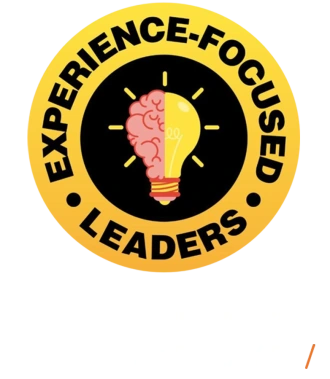Listen to the Podcast Episode on Your Favorite Platform

.svg.png)

Building B2B Marketing Prowess: Insights from a CMO Veteran
.png)
I think the most fun and rewarding part was that you're building something from scratch. Marketing from scratch is a heavy lift. There's no friction, no legacy, anything. There's no bad habits. (David Karel)
(00:01-09:20)
David recounts his transition from a product marketer to a CMO, starting with his role at Bizo, a small venture-backed company. He shares the challenges of building a marketing engine from scratch with only a small team and how self-awareness and overcoming imposter syndrome played a critical role in his success.
Both speakers emphasize the importance of product marketing as the strategic core of broader marketing efforts. They discuss how product marketing involves crafting messaging, narratives, and product launches and how this foundation is essential but not all-encompassing in the marketing landscape.
David highlights the process of growing Bizo's marketing team from a couple of contractors to a 25-person team over several years. He underscores the importance of hiring to fill competency gaps and investing in talent that complements the existing team.
A key lesson David shares is the parallel growth of sales and marketing teams. Building lead management processes and ensuring tight alignment between sales and marketing helped Bizo avoid common pitfalls and maintain efficiency.
David reveals his strategic decision to invest heavily in internal content creation and branding early on. Hiring a talented writer as his first major recruit helped Bizo quickly differentiate itself in the market, demonstrating the power of strong, in-house content capabilities.
.png)
Crafting Authentic B2B Marketing: Insights from Industry Experts
.png)
It was 2010. This renaissance was happening with marketing. Automation was just coming online. Marketo was in the late 2000s. The earliest adopters were using them, but it was starting to really hit not mainstream webinar platforms, as well as content management systems. There were more ways to more nimbly manage your websites and optimize your websites really quickly. (David Karel)
(09:20-15:11)
Alex highlights the common mistake in marketing: focusing excessively on generating leads without ensuring substance and quality in the content. David agrees, stressing that credibility and authenticity are key to making a strong first impression and building lasting relationships with potential customers.
David shares his strategy of hiring a great graphic designer early on to handle web and marketing design internally. This decision was driven by the need to maintain high standards and break through the noise in a competitive market. Alex points out that selling to marketers requires particularly high-quality marketing to establish credibility.
David explains the challenges of selling B2B marketing solutions to a broad market, which includes various verticals. The vast market size means there is a lot of noise, making it essential to have standout marketing strategies.
Reflecting on his time at Bizo and LinkedIn, David discusses the explosion of marketing technologies around 2010, including marketing automation tools like Marketo and content management systems. This period saw the rise of content marketing, account-based marketing (ABM), and data-driven strategies, which significantly influenced his approach.
Despite the excitement around new technologies, David acknowledges the challenges of adopting more tech than his team could support. He learned the importance of operationalizing tools effectively to avoid pitfalls and ensure long-term success.
David notes that while these technologies initially provided a competitive edge, their effectiveness has diminished as they became mainstream. This shift means that modern marketers must continually innovate and elevate their strategies to stand out.
Alex shares a humorous anecdote from a previous guest, the founder of Eloqua, who joked that marketers often "ruin every party" by overusing tactics until they lose their effectiveness. This underscores the need for a balanced, long-term approach to marketing.
.png)

From E-books to Executive Roles: The Evolution of B2B Marketing
(15:11-23:16)
David and Alex talk about how certain marketing trends, like giving out gift cards, initially work well but quickly become overused and lose effectiveness. David emphasizes the need for marketing efforts to be credible and authentic to build genuine connections with potential customers.
Alex shifts the conversation to Bizo’s acquisition by LinkedIn. David explains that Bizo’s fit within LinkedIn’s marketing solutions business was driven by their complementary products and organizational strengths. This move helped LinkedIn enhance its B2B marketing capabilities, particularly with the introduction of sponsored content.
Fast forwarding to his current role, David discusses his journey with Zenput, a restaurant tech company, which was later acquired by CrunchTime. He describes how he grew Zenput’s marketing team and business, and how he now oversees a more complex, scaled marketing operation at CrunchTime, which recently crossed the $100 million revenue mark.
David notes that while marketing tools like Marketo and Eloqua have remained largely unchanged, their heavy usage has led to decreased effectiveness. The democratization of these tools has made them accessible to many, but also created a lot of noise. David stresses the importance of cutting through this noise with targeted and meaningful marketing efforts.
Reflecting on the overuse of certain marketing tactics, David shares his approach to staying effective. He highlights the need to deliver the right message to the right audience at the right time. The goal is not just to get prospects to fill out forms, but to genuinely engage with the content and potentially change their thinking.
.png)
Rethinking B2B Marketing: From Tactics to Trust
(23:16-29:02)
Alex starts by challenging David on the idea of changing a prospect’s thinking and inspiring behavioral change. They agree that while getting someone to fill out a form is a low bar, the ultimate goal should be to make a profound impact that influences their priorities and actions.
David and Alex discuss the use of deceptive tactics in marketing, like the “trick” of showing a short form that expands into a longer one after an email is entered. While these tactics might seem clever and reduce initial friction, they often erode trust and leave prospects feeling tricked and frustrated.
David emphasizes the importance of considering the long-term impact of such tactics. He points out that in both consumer and B2B contexts, trust and credibility are crucial. Using pushy, short-term tactics can damage these relationships, especially in enterprise sales, where building trust and educating prospects is a lengthy process.
The conversation shifts to the significance of trust in B2B marketing. Alex and David agree that in selling complex and expensive products, like enterprise software, trust and education are essential. The focus should be on the long game rather than quick wins through misleading tactics.
David shares his experience at Bizo and his current role at CrunchTime, highlighting the importance of a strong relationship between marketing and sales. He explains how shared KPIs and close collaboration with his sales counterpart have been crucial in aligning their goals and achieving long-term success.
.png)

B2B Marketing Success: Collaboration Over Credit
.png)
You're either a part of a go-to-market team or you're not. And I think if you're not invested in staying really close to what's going on in the opportunities, it's really hard to do your job as a marketer. (David Karel)
(29:02-35:02)
Alex challenges the relevance of MQLs in measuring success. David agrees, stating that while MQLs help track progress within the marketing team, they are not the metrics that drive executive discussions or board meetings. Instead, the focus should be on later-stage deals and overall business impact.
David highlights the importance of building a culture where marketing and sales teams work closely together, sharing credit and responsibilities. He emphasizes that marketing’s role is to facilitate and support sales, making it easier for them to create opportunities and close deals.
Both speakers agree that in B2B, especially in mid-market to enterprise contexts, sales cycles are lengthy and require multiple touchpoints. It's a team effort where marketing aids in the education and nurturing of prospects, ultimately supporting the sales team in closing deals.
David shares his practice of having marketing teams actively participate in Quarterly Business Reviews (QBRs) with sales. This helps marketing stay attuned to the challenges and needs of the sales team, ensuring that marketing efforts are aligned with real-world sales opportunities and challenges.
They discuss the detrimental effects of internal disputes over credit for deals. David advocates for a mindset where both sales and marketing share ownership of results, fostering a cooperative rather than competitive environment.
They also touch on the importance of customer success, noting that successful onboarding and customer satisfaction lead to growth and upsell opportunities. This underscores the idea that everyone in the organization, from sales to marketing to customer success, plays a role in driving overall business success.
.png)
Breaking Through the Noise: Effective B2B Marketing and Sales Collaboration
.png)
The content works best when you're mapping it to someone. You've learned something. You've really learned one-on-one about somebody. Marketing can't really do that, but reps can. And especially if they get some enablement about how to go about that. (David Karel)
(35:02-44:35)
David emphasizes the importance of sales and marketing teams working as a cohesive unit. He notes that while specialization is valuable, being part of a unified team that shares data and supports each other leads to better outcomes. This collaborative approach helps break through the noise of common tactics that make prospects numb.
One key strategy discussed is audience prioritization. David explains that focusing on specific segments within their industry allows for the creation of stronger, more credible content. This targeted approach helps marketing and sales teams align their efforts and deliver more impactful messages to the right people at the right time.
Alex and David highlight the challenge of effectively integrating marketing content into the sales process. Often, marketing and sales use different tools and have different mindsets, leading to disjointed efforts. They discuss the importance of creating a shared content experience that is easily accessible and reusable by sales teams throughout the customer journey.
David shares a practical example of how his team handles content deployment. They conduct proprietary research to create valuable reports and then promote these through various marketing channels. However, the real power comes from enabling sales teams to use this content effectively. By providing sales enablement kits, training, and templates, they ensure that sales reps can personalize and leverage content to engage prospects meaningfully.
Training and ongoing support are crucial. David explains how his team conducts training sessions to teach sales reps how to use new content strategically. This includes creating tailored emails, social media posts, and other materials that help sales reps map content to the specific needs of prospects, making their outreach more relevant and effective.
.png)

Unlocking the Power of Precision: Streamlining Content Sharing for Maximum Impact
(44:35-50:42)
Alex highlights a common issue in content sharing—making lengthy reports accessible and credible without overwhelming the recipient. He describes the need for "atomic sharing", where specific, relevant pages of a report can be shared directly with prospects. This targeted approach prevents the hassle of scrolling through lengthy documents and ensures that the audience gets straight to the valuable content.
Traditional formats like PDFs are not designed for deep linking into specific sections, making it difficult to direct a prospect to the most relevant part of the content. Alex points out that while breaking down content into smaller pieces, such as blog posts, can help, it often falls short of being truly specific and impactful.
David and Alex discuss the trade-off between making content easily accessible and maintaining its credibility. While short, accessible content pieces can engage prospects initially, there's a risk of losing the depth and credibility that longer reports provide. Finding the right balance is crucial for maximizing the value of marketing investments.
The conversation shifts to the importance of sales and marketing teams working together to personalize content effectively. David emphasizes the role of sales enablement in providing reps with the tools and training needed to use content strategically. By understanding the prospect's needs and mapping content to those needs, sales teams can make more meaningful connections.
Alex suggests that AI can play a significant role in improving content personalization. AI can analyze client needs and recommend specific pages or sections of reports that are most relevant, enhancing the precision of content delivery. This approach not only saves time but also increases the likelihood of engaging the prospect effectively.
.png)
AI's Role in Transforming Sales and Marketing: Seamless Personalization and Accessibility
.png)
We've known this for a decade, but how can we start getting really good at scratching that itch for the buyer that actually wants to self-educate? Where they can have what they need? They don't have to go to a formal product demo, they can see that online. (David Karel)
(50:42-57:29)
David begins by discussing the transformative potential of AI, likening it to a new renaissance. He emphasizes the importance of AI tools like large language models and ChatGPT in learning buyer preferences and personalizing content effectively. This technology can replace traditional forms with prompts that better cater to the buyer's needs, thereby streamlining the process.
Alex points out that while AI chat interfaces are popular, they aren't the only way to consume content. Different decision-makers have varying preferences—some prefer visual cues, others textual or linear formats. Recognizing these differences is crucial for structuring content in a way that meets diverse needs, ensuring that it is both accessible and engaging.
David stresses the importance of delivering the right content at the right time. He illustrates this with a relatable scenario: a decision-maker researching solutions late at night. In such moments, having immediate access to precise and relevant information can significantly shorten the buying cycle. The goal is to make self-education seamless, allowing buyers to find what they need quickly and efficiently.
The speakers discuss the need to minimize friction in the buyer’s journey. Traditional marketing often requires prospects to book meetings or trade information for demos, which can be a barrier. By making high-quality content readily available, businesses can facilitate faster decision-making, especially for senior executives who often review materials during off-hours.
David notes the shift towards self-education in the professional world, mirroring consumer behavior. He acknowledges the competitive risks but believes that providing comprehensive online resources can empower buyers and enhance trust. This approach can ultimately lead to more informed and faster purchasing decisions.
.png)

Bridging the Gap: AI and Personalization in B2B Marketing
.png)
Good enterprise selling is around discovery and understanding. It's hard to do. Pure self-education is hard because you need to learn. Will AI be the panacea? I don't know. But it does seem like the more you can learn through self-education, you can then tee up the right content. Today it's been harder to do that. There’s where some of the trepidation would be. (David Karel)
(57:29-1:05:56)
Alex begins by highlighting the challenges in B2B and scientific content. He notes that in fields like life sciences, users are motivated to dig into detailed references and academic publications. However, B2B content often lacks the same level of engagement because it's not effectively tailored to the audience's needs.
Alex stresses that in B2B, it's crucial to bring substantive and credible content to the forefront. He argues against simply copying B2C strategies, advocating instead for leveraging the credibility of detailed, well-researched content. This approach is particularly important when decision-makers need to quickly find relevant sections in reports or proposals to make informed decisions without unnecessary friction.
David and Alex discuss the balance between self-education and guided learning in the sales process. David mentions that while self-education is valuable, especially when decision-makers are researching on their own time, it can be challenging without understanding the specific needs of the buyer. AI can help by learning from interactions and suggesting relevant content, but it may not completely replace the need for direct human understanding and interaction.
Alex suggests shifting from a traditional table of contents approach to a question-based mindset. This method can help guide buyers through personalized content journeys, making it easier for them to find what they need. AI can assist by enabling marketers to structure these journeys based on common buyer questions and problems.
David reflects on the balance between long-form, substantive content and the need for more accessible, bite-sized pieces. He acknowledges the diminishing attention spans but emphasizes the importance of maintaining credibility and substance in B2B marketing. Providing small, digestible pieces of content that link back to more detailed sources can help strike this balance.
Despite the trend towards shorter content, David believes that deep, heavy content can still be effective if targeted correctly. He advises focusing on creating substantial content for specific, well-defined audiences rather than trying to appeal to everyone. This approach can ensure that the content resonates more deeply with the intended audience.
.png)
Unveiling Authentic Leadership: Lessons from David Karel
.png)
Most important is to build a circle of people that you can be really open with about what's troubling you, what you're worried about, where you're feeling lack of confidence. So that you can grow. And usually with the insights you're getting, you have a self-awareness that's very different from how other people perceive you. (David Karel)
(1:05:56-1:12:41)
David and Alex begin by discussing the common pitfall of creating content that tries to appeal to too broad an audience. They emphasize the importance of crafting targeted content that resonates deeply with specific audiences. This approach ensures that the content feels relevant and valuable to the intended recipients.
Alex praises David's empathetic and patient approach to leadership, asking him to share the secrets behind his professional success. David reflects on his journey, highlighting the importance of self-awareness and authenticity. He explains that being true to oneself and bringing a human touch to professional interactions can significantly impact team dynamics and overall success.
David shares that one of the keys to his effectiveness is being open and vulnerable. By honestly expressing his concerns and weaknesses, he has received the most valuable feedback and support from mentors, peers, and managers. This openness has allowed him to grow and improve continuously.
While technical skills and knowledge are essential, David believes that personal growth and emotional intelligence play a crucial role in becoming an effective leader. He encourages listeners to build a support network of trusted individuals with whom they can share their challenges and receive candid feedback.
The conversation also touches on the potential of AI to aid in creating personalized content journeys for buyers. While AI can help tailor content to specific needs, David and Alex agree that understanding the audience's problems and guiding them through the right content is vital.
David highlights the importance of authentic relationships in both personal and professional settings. He believes that being genuine and approachable helps build trust and fosters a more cohesive and motivated team.
.png)
Check the episode's Transcript (AI-generated) HERE.
Other Episodes

Godard Abel | CEO of G2
S 01 | Ep 6 Where You Go for Software: Reach Your Peak


Dean Stocker | CEO of Alteryx
S 01 | Ep 8 Turning Your Customers Into Your Biggest Champions


Peter Fader | Co-Founder of ThetaCLV
S 01 | Ep 10 Turning Your Marketing Into Dollars

Author

Experience-focused Leaders is the #1 Multimedia Podcast! We talk to senior business & tech leaders about the experiences that move forward organizations, customers and society at large. True to form, we mix audio, video, web and eBook formats to turn these authentic conversations into personalized nuggets you'll remember & use.



.png)
